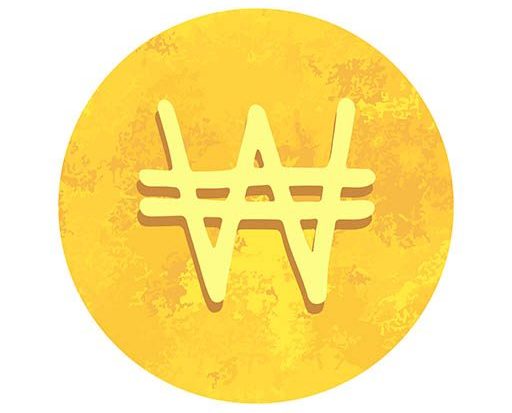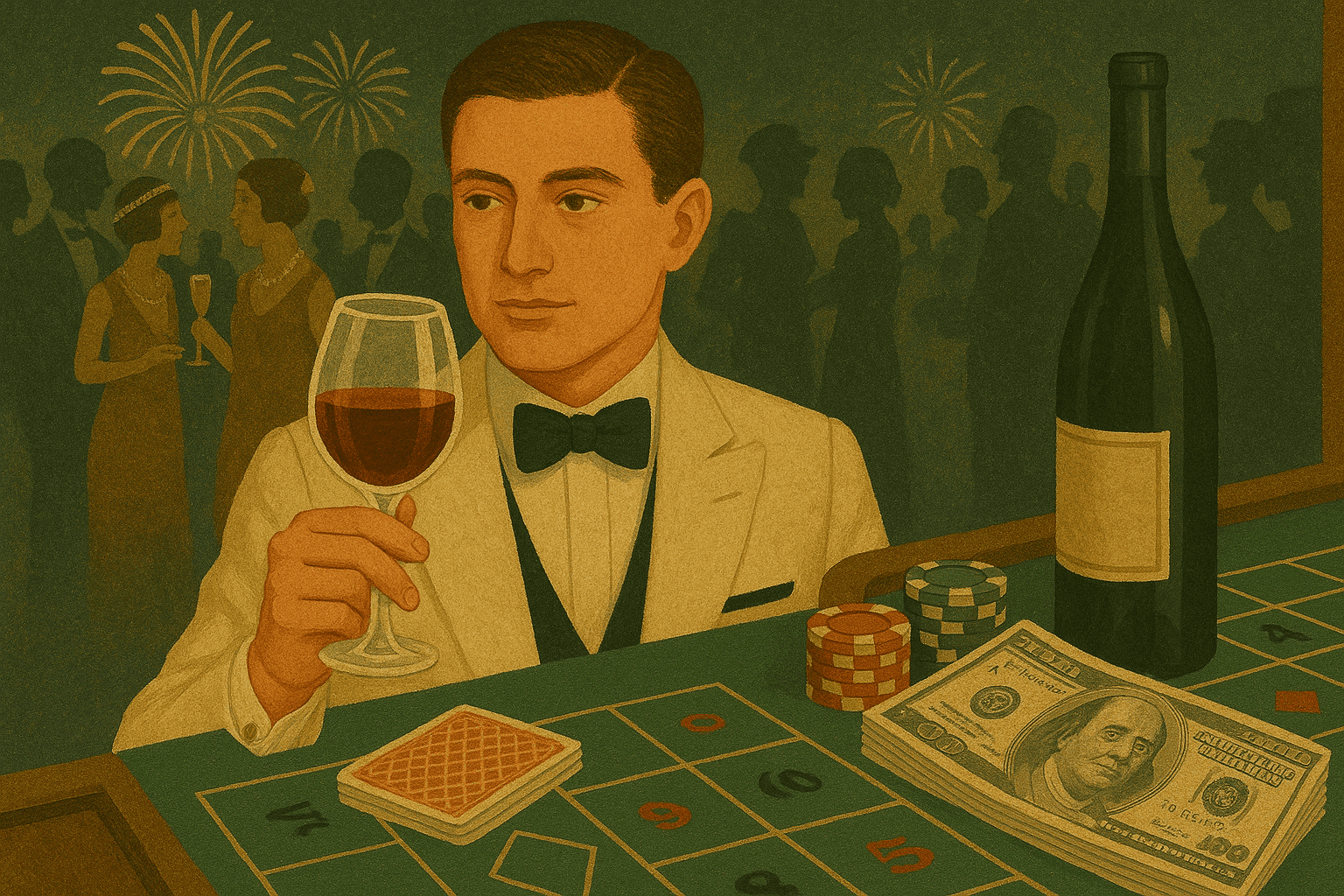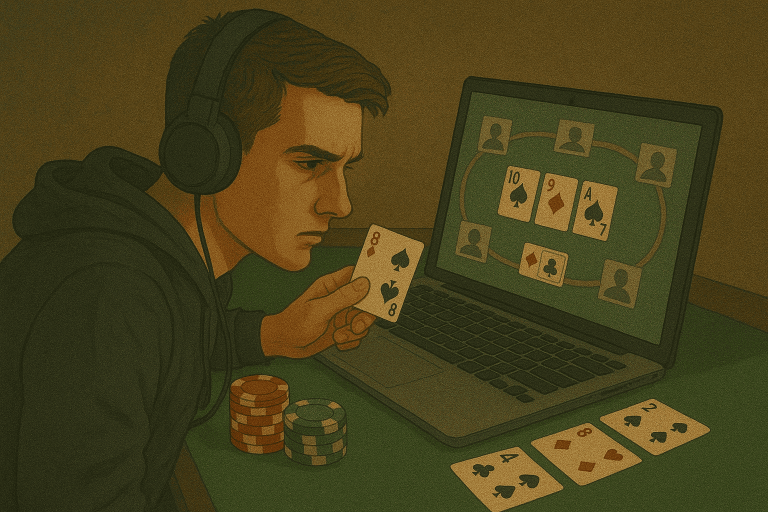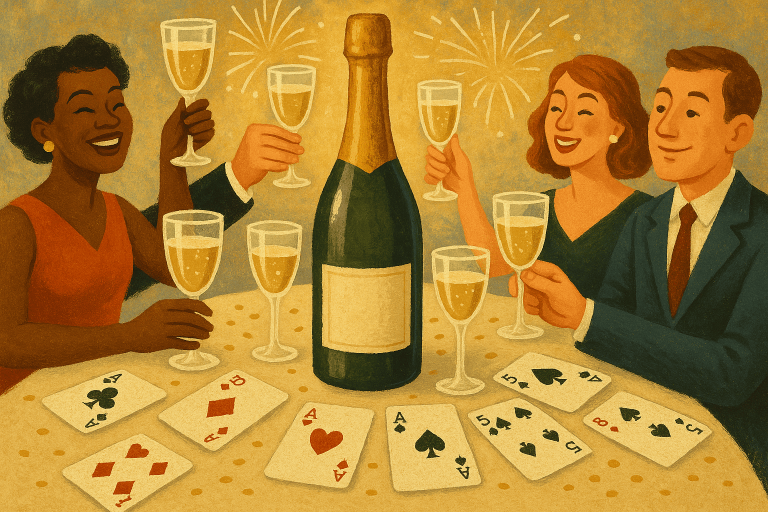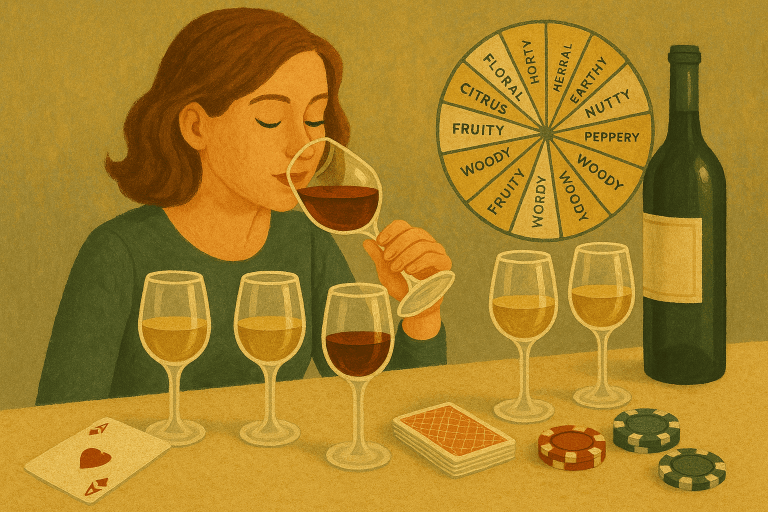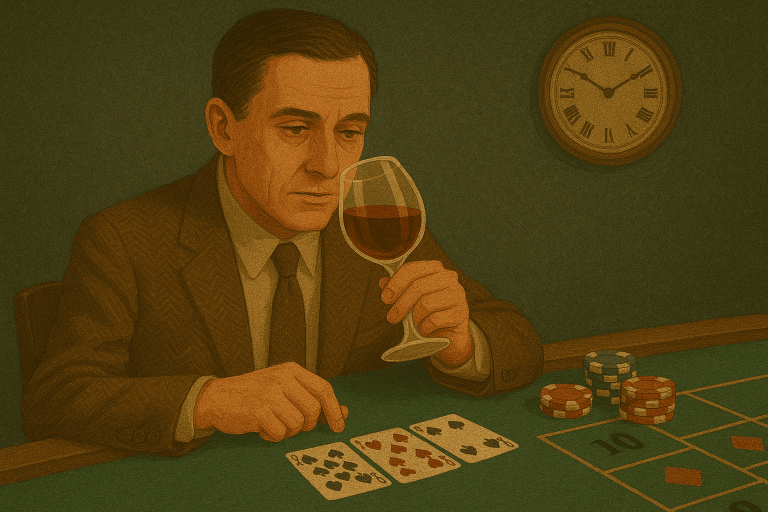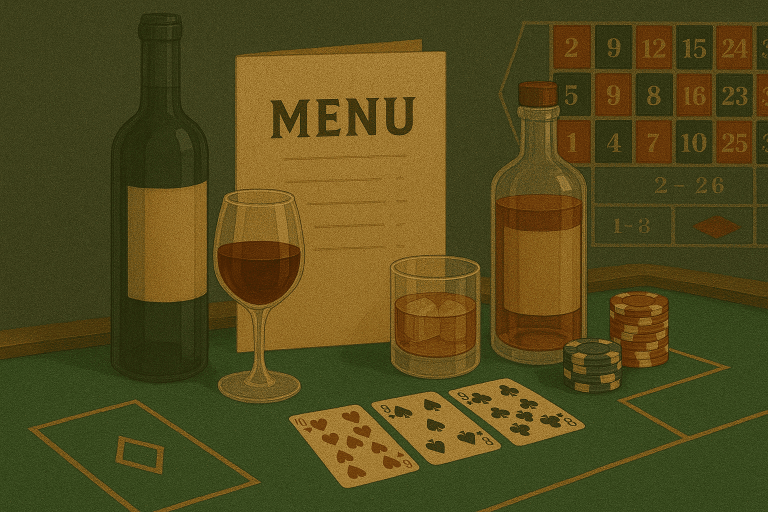The Gatsby Paradox: When Wine, Wealth, and Wager Blur the Line Between Play and Identity
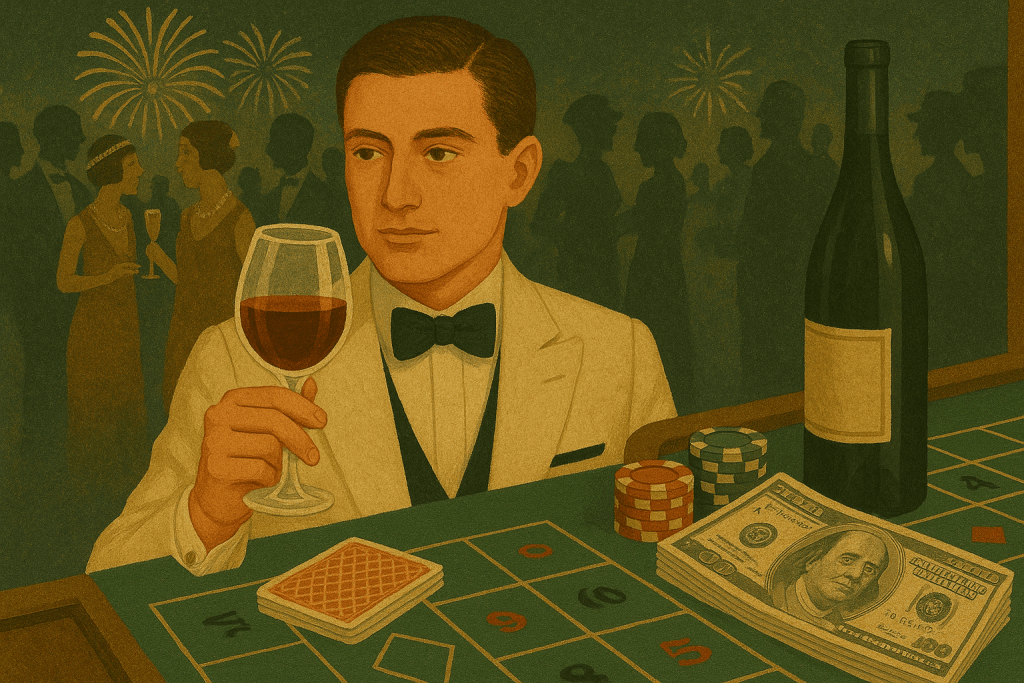
Opulence as illusion
Jay Gatsby didn’t just host parties — he orchestrated myth. His West Egg mansion glittered with champagne, jazz, and strangers who danced not just for fun, but to be seen. Behind every flute of sparkling wine and every whispered bet, there was a carefully constructed image. And yet, it was all a game — a dazzling performance stitched together by desire and debt, roses and risk.
In Gatsby’s world, wine, wealth, and wagering weren’t just accessories. They were tools. Instruments of reinvention. Symbols of ambition. The wine sparkled, the music pulsed, and somewhere in the margins, fortunes shifted hands. Nothing was accidental. Everything was curated.
And yet — like many online players today — Gatsby played not just for victory, but for recognition. For a place in a story larger than himself.
Luxury, curated identity, and the high-stakes performance
Wine has always been more than a beverage. In Gatsby’s circle, a choice of vintage said more than a thousand words. Was it a French Bordeaux, a California blend, a Moët Rosé served cold at midnight? Each bottle was a line of dialogue in the great script of social standing.
Online casino players, too, build narratives: through avatars, usernames, rituals, and table choices. A sleek profile, a signature poker move, a preference for blackjack over slots — these are modern-day equivalents of Gatsby’s crisp white suit or his extravagant cellar.
In both cases, the game isn’t just about the outcome. It’s about how you’re perceived.
Playing a role to feel real
Fitzgerald’s characters are always acting. Daisy is the beautiful illusion. Tom is the muscle in a tailored suit. Gatsby is the dreamer wearing a mask. The tragedy lies in how much they believe their own performances — and how those roles both elevate and imprison them.
The same paradox plays out in the world of high-end gambling and even more so in the digital sphere. In online casinos, players often create hyper-real versions of themselves. The fearless high roller. The cool strategist. The mysterious night owl. They aren’t lies — they’re lenses, designed to highlight a particular fantasy.
And sometimes, the player becomes the performance.
Wine and risk: shared symbols, different tempos
Wine and gambling move at different speeds, but they serve the same purpose: they intensify the moment. A rare vintage or a sudden jackpot — both suspend time. Both ask you to lean in. To risk something. To notice the texture of now.
And just like Gatsby’s parties, these experiences are meant to feel fleeting and eternal at once — intoxicating and empty, sacred and absurd.
The appeal of illusion
Why do we play? Why do we dress up, sip fine wine, log into online poker rooms with pseudonyms and rituals? Because illusion, when chosen consciously, becomes empowerment. It allows us to explore possibilities, to dance with versions of ourselves we might otherwise hide.
Gatsby knew that. So do many modern players. The house always wins — but in the performance, the player can still own the spotlight.
From mansion to monitor: aesthetic continuity
The shift from ballroom to browser didn’t kill the Gatsby spirit. It moved it. Live casino rooms now mimic luxury with velvet-colored graphics, polished dealers, and soft jazz soundtracks. Player profiles allow for flair, status symbols, and private rooms. Virtual champagne toasts happen in streamers’ chats. Prestige still matters.
Just as Gatsby built a palace to host the fantasy, platforms now build immersive casino environments for digital personas to flourish. The tools have changed. The psychology hasn’t.
When image becomes risk
There’s a gamble not just in cards or roulette, but in self-expression. In choosing a digital identity, a betting style, a presence. The moment you become a character, you invest more than chips — you risk emotional capital.
And that’s where it gets interesting: when the line between game and self begins to blur, the stakes rise. Just like Gatsby, players may lose themselves in the very persona they crafted.
But unlike Gatsby, modern players can log out. They can rebuild. Rebrand. Reimagine.
Style is a form of strategy
The Gatsby paradox is this: the role is never real, and yet it reveals real truths. The wine is symbolic, but the intoxication is felt. The bet is statistical, but the thrill is deeply personal.
In wine, in wealth, in wagering — we’re not just consuming. We’re becoming.
And as long as we remain aware that the game is ours to shape — the paradox empowers, rather than consumes.
